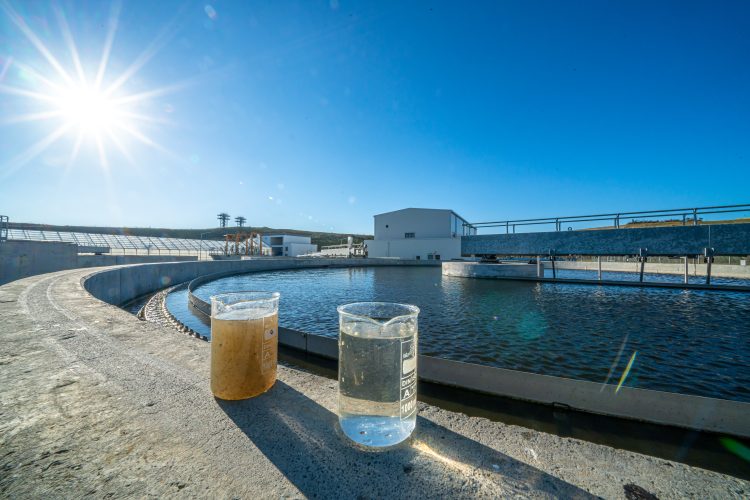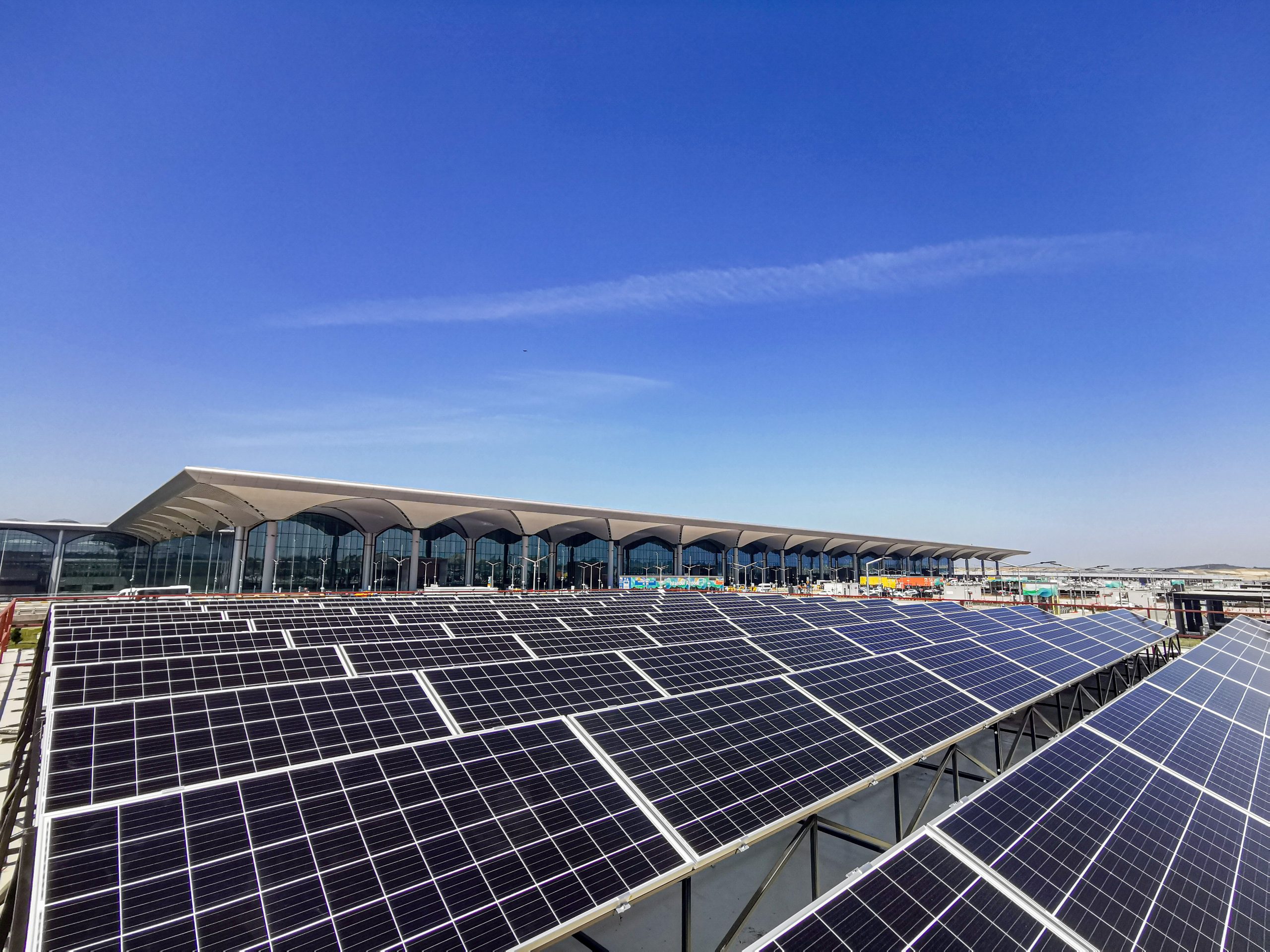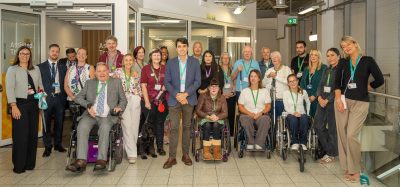iGA Istanbul Airport – leading the way in human, environmental and social sustainability
Posted: 12 December 2023 | iGA Istanbul Airport | No comments yet
iGA Istbanul Airport reflects on the progress of its sustainability targets to date and tells International Airport Review how they’re not stopping there…


CREDIT: IGA ISTANBUL AIRPORT
In 2023, iGA Istanbul Airport published its 2021-2022 Sustainability Report highlighting how it has worked towards its goal of a sustainable future since originally outlying its sustainability targets in 2019.
Due to the political unrest in 2022, energy became increasingly in demand amidst growing economic and environmental uncertainties, thus, iGA Istanbul Airport identified the importance of sustainable governance. We committed to being net zero by 2050 and developed a ‘2050 Net Zero C02 Roadmap’ in line with the IPCC 1.5 C targets. The roadmap holds the airport accountable for its carbon footprint, which led to us implementing a carbon emissions reduction strategy and defining the core pillars of the roadmap. With iGA’s motto for the roadmap being ‘Focus on the Planet, Target for the Future,’ the creation of this plan assisted Istanbul to ascertain its vision of being a meeting point of diverse cultures, providing safe and comfortable journeys for guests and using technology for the benefit of the people and the environment.
The three key pillars of the roadmap are working for the mobility of the future; committing to maintaining the integrity of the environment and generating value for society, guests and employees. With people at the forefront of these goals, the airport has recognised its desire to lead the aviation industry in accessible travel. We have also evaluated how to monitor mobility emissions, due to this largely occurring outside of our corporate boundaries. This makes close collaboration with our stakeholders vital for us to ensure emission reduction is a priority across the board and to actualise the energy management of the airport.


CREDIT: IGA ISTANBUL AIRPORT
Human sustainability – working for the future of mobility
Achieving net zero targets by 2050 can only be obtainable through us protecting human sustainability. Human sustainability essentially protects the health and education of people, giving them the knowledge and skills to live an enriched life. Therefore, accessibility and mobility efforts are at the forefront of iGA Istanbul Airport’s mission.
The sustainability measures implemented can help travellers to consider their environmental impact in order to make more conscious choices.
In order to help the future of mobility for all members of society whilst considering human sustainability, iGA Istanbul Airport has a plethora of services that are improved upon annually. A recent addition includes accessible routes as an alternative to the existing Loud Steps application. Through the accessible routes, visually impaired guests can navigate around the airport with the confidence that they will be safe from obstacles. Moreover, they can use the Istanbul Airport mobile app to access Loud Steps, whereby voice guidance will assist with directions as well as provide guests with descriptions of their surroundings. Other inclusivity and mobility features include providing sunflower lanyards for guests with invisible disabilities, service points for guests with special needs and private sensory spaces.
For employees, the airports’ iGA Academy provides over 6,400 digital training courses ensuring every employee can access relevant training to help them carry out their role to the highest standard and to ensure employees can recognise hidden disabilities as well as understand how to assist passengers. The digital platform has resulted in a 79% increase in the use of training platforms compared to previous years. To remain sustainable, iGA Istanbul Airport has identified that access to mandatory training on both people and the environment needs to be convenient and easily obtainable. This has resulted in 150 employees now being trained in sign language that includes aviation terminology to best assist passengers in the context of the airport.
Environmental sustainability – commitment to maintaining environmental integrity
In 2022, we were pleased to report a 21% drop in carbon emissions since 2019, demonstrating our efficiency initiatives to reduce Scope 3 emissions. This occurs through stakeholder audits, training and information dissemination activities that are manageable through our Stakeholder Management plan and the Scope 3 emissions are monitored in accordance with the Airport Carbon Accreditation programme.
iGA Istanbul has been recognised by the ACI Airport Carbon Accreditation Programme. We believe the encouragement of all sector players to take action against climate change, inclusive of stakeholders, was key in this achievement. In addition, joint studies and climate adaptation activities are regularly carried out with the public sector to update the International Civil Aviation Organisations’ Climate Adaptation Synthesis Report which helps the airport identify how to continuously improve its own processes.
Examples of how iGA Istanbul is reducing our Scope 3 emissions includes through collaborating with Eurocontrol to conduct joint initiatives to reduce taxi-out time as to reduce fuel burn and emissions, thus reducing environmental impact. Moreover, through the Advanced Surface Movement Guidance Control Level 4 (A-SMGC Level 4) ‘Follow the Greens’ integration system. This system takes on the role of the air traffic controller to supervise the taxiway guidance of aircraft movements between runway and parking. This aims to reduce traffic on the runway as well as congestion through operating a smoother process thus reducing emissions and fuel burn.
Social sustainability – generating value for society, guests and employees
To work towards social sustainability, iGA Istanbul Airport’s social investments have helped focus on the development of society and communities as well as advocate for culture and art. We consistently monitor and evaluate the achievements of these initiatives. In fact, we have identified that for every one Turkish Lira (TL) invested in the airport’s Social Investment Programme, a social impact worth 5.6 TL is generated. This ensures our airport staff are highly educated on these procedures and moreover, supports vulnerable members of society. The value of this has been measured across the board and looking at the one-year progress from 2021-22 we can see the training hours provided to employees has increased by 1,001 and the female employee ratio has increased by 1.43%. Additionally, the energy consumption per passenger has reduced by 2.04% and water consumption per passenger has reduced by a staggering 6.7%.
iGA’s Sustainable Investment Programme has community goals that are to be obtained by 2030 which include supporting agricultural activities, empowering women and youth, supporting vulnerable groups, increasing duty-free sales of toys produced through the From Hands of Women to Hearts of Children Project by 300% and creating a medium for art that serves the UN Sustainable Development Goals.
iGA Istanbul Airport’s mission of being an art centre where different cultures meet and interact, is being achieved through the iGA Art programme. This programme hosts guests with varying goals in a cultural and artistic environment with the intention of putting long-term projects on display to bring richness to the airport. An example of this can be seen when we hosted Mr Mehmet Kavukcu’s solo exhibition, ‘Nature’ to bring awareness to the 06 February 2023 earthquakes using reused materials collected from the Hatay earthquake site.
iGA Istanbul Airport is paving the way for the aviation industry to be more eco-conscious whilst still prioritising passenger experiences. Through considering human, social and environmental sustainability, we have been able to create a net zero roadmap with guidelines until 2050 whilst still being at the forefront of the industry.
Join our free webinar: Transforming Airport Security – Innovation, Impact, and the Passenger Experience
The landscape of airport security is undergoing a profound transformation, driven by evolving threats, technology, and passenger expectations. This webinar focuses on how AtkinsRéalis has been transforming security processes at some of the world’s busiest airports with smarter, more adaptive solutions.
Date: 4 Nov | Time: 14:00 GMT
REGISTER NOW TO SECURE YOUR SPOT
Can’t attend live? No worries – register to receive the recording post-event.
Related topics
Emissions, Social responsibility, Sustainability, Sustainable development

















